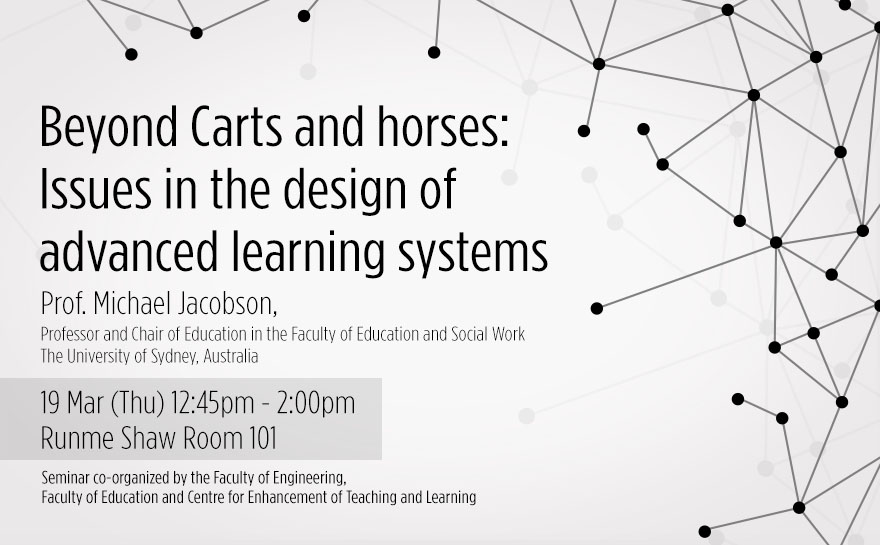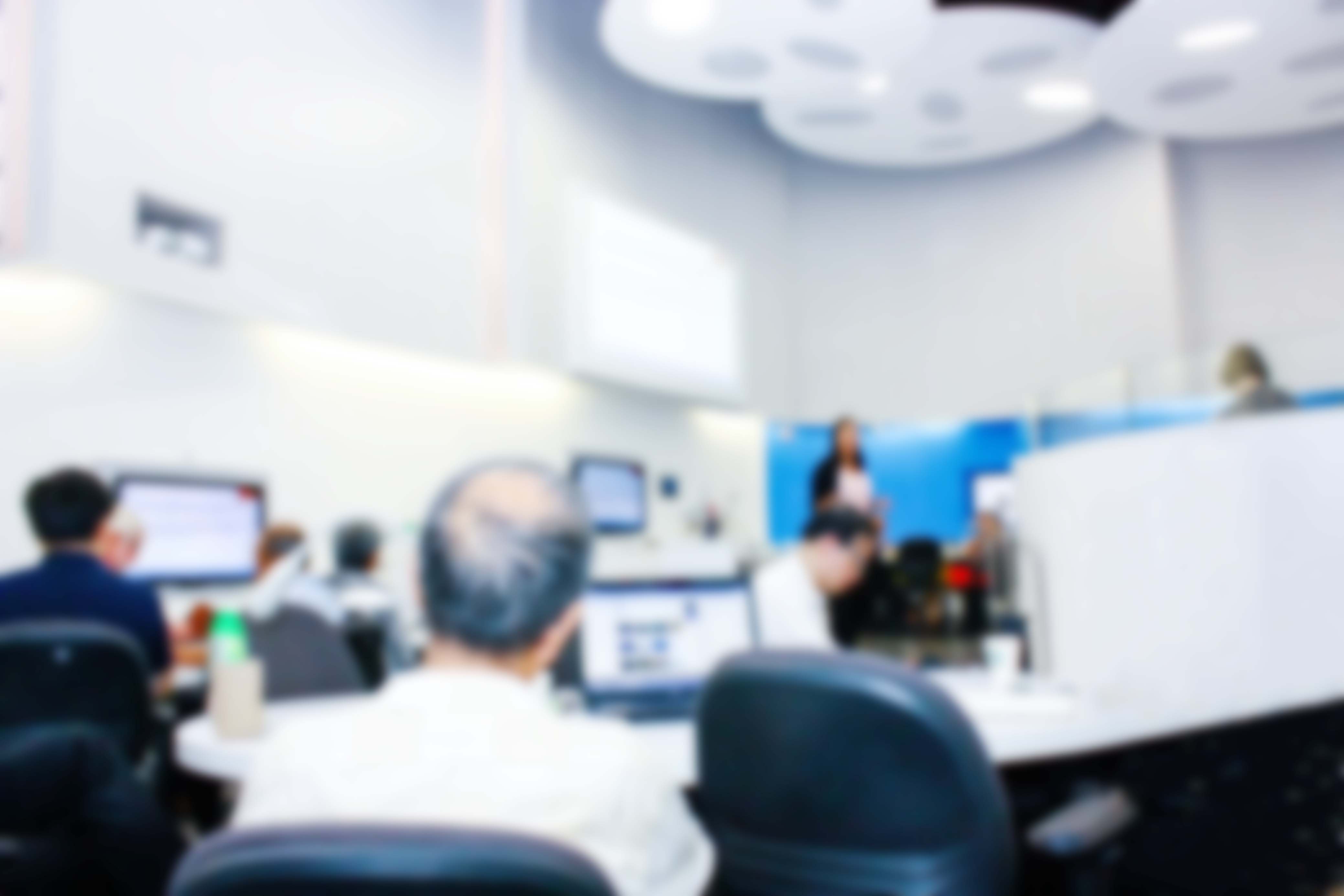
Co-organized by the Faculty of Engineering, Faculty of Education and Centre for Enhancement of Teaching and Learning
Speaker: Prof. Michael Jacobson, a Professor and Chair of Education in the Faculty of Education and Social Work at the University of Sydney, Australia
Date : Mar 19, 2015 (Thurs)
Time : 12:45pm-2:00pm
Venue : Runme Shaw Room 101
Abstract:
In this talk I discuss a study in which ninth grade students used agent-based computer models to learn difficult scientific knowledge about complex systems of relevance to understanding climate change. We investigated if varying the sequencing of pedagogical structure (SPS) provided for the computer models would result in differential learning outcomes of the targeted complexity and climate concepts. The experimental condition used a low-to-high (LH) SPS sequence based on productive failure (Kapur & Bielaczyc, 2012), whereas the comparison condition was based on a teacher’s suggestion to employ a more traditional teaching approach—which is classified as a high-to-low (HL) SPS sequence—for the classroom activities. The main results found significant learning of ideas such as “greenhouse gases” and “carbon cycle” by both groups on the posttest.
However, for the more conceptually challenging complex system ideas, such as “self organization” and “emergent properties,” only the LH experimental group demonstrated a significantly higher performance on the posttest compared to the HL comparison condition. Theoretical and practical implications of these findings for the design of advanced learning systems are considered.
About the Speaker:
Michael J. Jacobson, Ph.D., is a Professor and Chair of Education in the Faculty of Education and Social Work at the University of Sydney, and an Honorary Associate in the School of Medicine. He also is the Co-director of the Centre for Research on Computer Supported Learning and Cognition (CoCo).
Previously, he was an Associate Professor in the Learning Sciences Laboratory (which he helped establish) at the National Institute of Education (NIE), Nanyang Technological University in Singapore and the Senior Associate Director and an Associate Professor at the Korea University Center for Teaching and Learning in Seoul, Korea. Professor Jacobson has also held faculty and research positions at the University of Illinois at Urbana-Champaign, Vanderbilt University, and the University of Georgia.
His research has focused on the design of learning technologies to foster deep conceptual understanding, conceptual change, and knowledge transfer in challenging conceptual domains. Most recently, his work has explored learning with immersive virtual worlds and agent-based modeling and visualization tools, as well as cognitive and learning issues related to understanding new scientific perspectives emerging from the study of complex systems. Professor Jacobson has published extensively in areas related to the learning sciences and technology, including numerous scientific papers, book chapters, and two books. His 2006 paper in the highly ranked The Journal of the Learning Sciences (with Uri Wilensky) was the most cited paper in the journal between 2006 and 2011. He has given talks and invited addresses at national and international conferences and served as an educational and business consultant both in the United States and abroad.
Groups such as the Australian Research Council, Singapore Ministry of Education, Korean Ministry of Information and Communication, and U.S. National Science Foundation, have funded his research. In addition, he is an Affiliate of the New England Complex Systems Institute. In July 2012, he served as the Chair of the 10th International Conference of the Learning Sciences, which had the conference theme of “the future of learning.”
Professor Jacobson received his Ph.D. from the University of Illinois at Urbana-Champaign in 1991.
For information on registration, please contact:
Ms Ivy Lai , CETL
Phone: 3917 8996; Email: laichun2@hku.hk.













